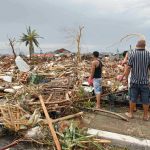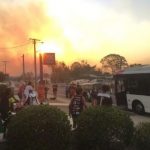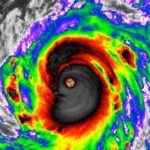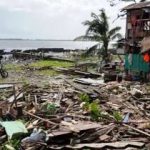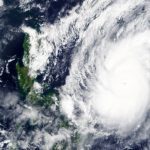A powerful storm sweeping towards the Philippines intensified into a super typhoon on Saturday.
Philippines State weather forecaster said significant to severe impacts from the wind and life-threatening storm expected.
Around 255,000 people have abandoned their homes in preparation for Super Typhoon Man-yi, which is likely to make landfall later becoming the sixth big storm to hit the archipelago nation in the past month.
Typhoon Man-yi, with wind gusts of up to 230 kilometers per hour (about 140 miles per hour), was on pace to strike the sparsely populated island province of Catanduanes as a super typhoon.
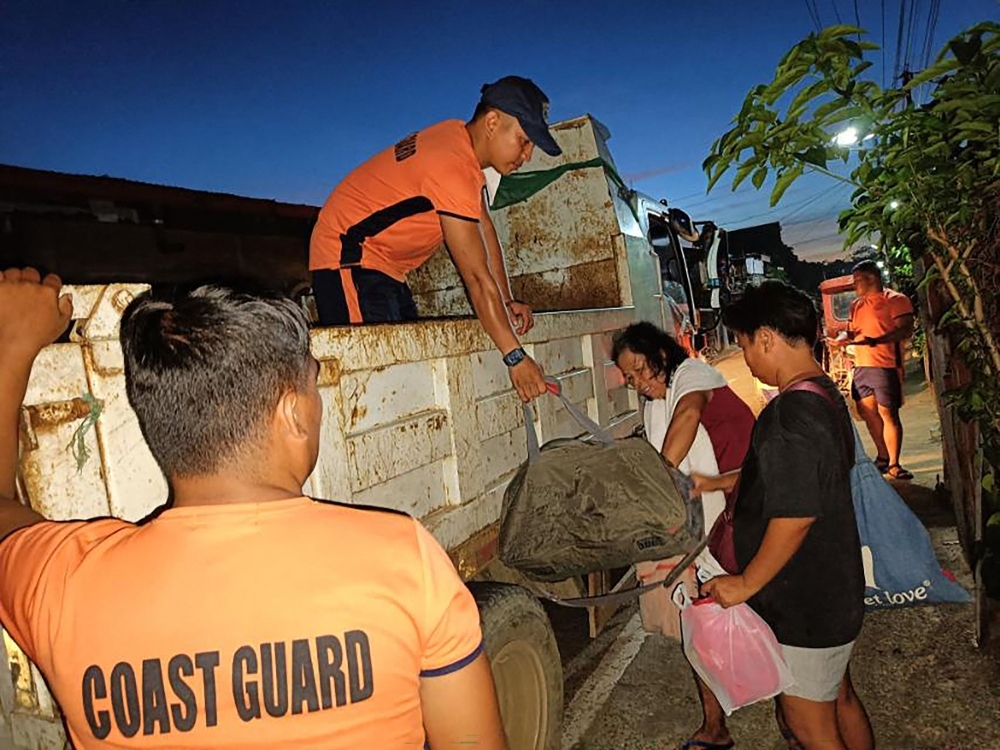

Up to 14-metre-high seas were expected around Catanduanes, while “significant to severe impacts from typhoon-force winds are possible” in the hardest hit areas, along with a “high risk of life-threatening storm surges” exceeding three metres, the forecaster said.
At least 163 people died in the five storms that hit the Philippines in recent weeks that also left thousands homeless and wiped out crops and livestock.
The government urged people today to heed warnings to flee to safety.
Scientists have warned climate change is increasing the intensity of storms, leading to heavier rains, flash floods and stronger gusts.
About 20 big storms and typhoons hit the Southeast Asian nation or its surrounding waters each year, killing scores of people, but it is rare for multiple such weather events to take place in a small window.
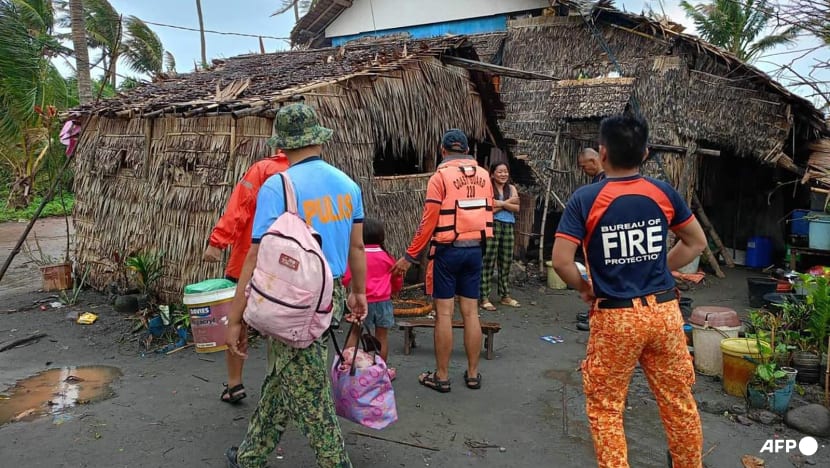
Evacuation centres were filling up on Catanduanes island in the typhoon-prone Bicol region, with the state weather forecaster warning today of “widespread incidents of severe flooding and landslides”.
More than 400 people were squeezed into the provincial government building in the capital Virac, with new arrivals being sent to a gymnasium.
Monterola said he had dispatched soldiers to force about 100 households in two coastal villages near Virac to move inland due to fears storm surges could swamp their homes.
In Northern Samar province, disaster officer Rei Josiah Echano lamented that damage caused by typhoons was the root cause of poverty in the region.
All vessels — from fishing boats to oil tankers — have been ordered to stay in port or return to shore.
Earlier this month, four storms were clustered simultaneously in the Pacific basin, which the Japan Meteorological said was the first time such an occurrence had been observed in November since its records began in 1951.



